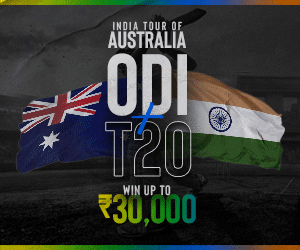Game of skill or game of luck? Sport or gambling? Legal or illegal? That is the cloud hanging over the fantasy sports scene in India, a field that exploded out of nowhere into the national consciousness, only to now face pushback from various state and central authorities.
As it stands, Assam, Odisha, Andhra Pradesh, Telangana, Nagaland and Sikkim have banned fantasy gaming, putting a spanner in the works of this fast-growing arena. Reports of people being driven to suicide and financial issues were said to be one of the primary reasons prompting state governments to crack the whip.
Tamil Nadu brought in a ban through an ordinance, though the courts intervened—the last has not been heard of the scenario from here yet. There are reports that Karnataka is mulling a similar law.
The Central government has also stepped in. From December 15, it will be compulsory for all gaming ads on TV to follow a series of guidelines. This will include a statutory warning accompanying all ads that these games should be played only at one’s own risk as it “involves an element of financial risk and may be addictive,” as issued by the Advertising Standards Council of India. The decision followed a meeting organised by the I&B ministry where reps from gaming bodies, advertising and broadcasters were present.
The showdown between Google and Indian tech companies in October also involved gaming, after the Paytm app was removed from Android’s Play Store the previous month. Google claimed that this was for violating its rules on ‘gambling’ while Paytm, along with fellow Indian tech majors, ran to the government crying foul and questioned Google’s dominance over the app ecosystem.
“We wish to make it clear that as per Indian laws, fantasy sports are completely legal and allowed all over India, except in few states,” Sudhanshu Gupta, chief operating officer of Paytm First Games told THE WEEK in an exclusive interview, “They are a game of skill, just like chess and quiz.”
Fantasy gaming has been growing by leaps and bounds in recent years. From 10 operators and 50 lakh users in 2016, the numbers have gone up to 150 operators and 10 crore users presently. It burst into mainstream top billing recently when Dream11, one of the leading players in the genre, bagged the title sponsorship of this year’s Indian Premier League (IPL), beating the likes of Tatas and Byju’s. The winning amount of about Rs 222 crore is loose change for the Mumbai Unicorn, considering that its latest valuation is pegged at upwards of 18,000 crore rupees.
Its main rival, Paytm First Games, witnessed an increase of over 2 crore registered users in the last 3 months alone—during the IPL, user engagement went up 400 per cent. First Games is a subsidiary of the digital wallet unicorn PayTM—the parent company reportedly believes its gaming platform’s spiralling popularity is pivotal to its launch of a super-app that can rival Google or the efforts that Reliance Jio has been making in the space.
But, now with the crackdown, survival instincts have kicked in, with online rummy and poker players bearing the brunt. “Fantasy sports is being put in the same bracket as poker and rummy and other real money games, which is what’s led to so much negativity around the fantasy sports platforms,” argues Kush Desai, founder of NxGn Sports Interactive, which runs the fantasy football platform Twelfth Man.
The argument of the industry has been that fantasy sports require skill and planning, and not just luck, and hence was not "a game of luck" like lottery or gambling. Points out Gupta of PayTM First Games, “Fantasy Games requires the players to do in-depth research, improve their knowledge base and then make strategic choices while selecting their teams. They are a game of skill…There have been multiple instances where courts have also settled this matter.”
“Fantasy sports are not the same as lottery or gambling,” explains Desai. “They are games of skill. To make and submit a team that helps you win a contest, you need to be aware of the sport. In the case of football, the sport is much more than just goals and assists — one needs to be up to date with regards to the clubs playing in particular leagues, the performance of the players, the form the players are in etc.”
Despite the spectre of bans, the industry has been growing from strength to strength ever since lockdown expanded the average age of users from 18-35 to 18-55. There is also a vast fan base in the hinterland. With Sachin Tendulkar on board as brand ambassador for Paytm First Games, Virat Kohli for MPL and Sourav Ganguly appearing in many My11Circle’s ads, popularity has sky-rocketed.
“Sachin being the role model of millions of Indians along with our quality gaming experience has led to an exponential growth of our platform,” says Gupta of PayTM First Games. “More than 60% of our user base belongs to tier 2,3 and 4 cities. India has a huge untapped pool of sports lovers…over the next few months, we are targetting to launch more games under various formats and increase our reach in smaller towns and cities.”






